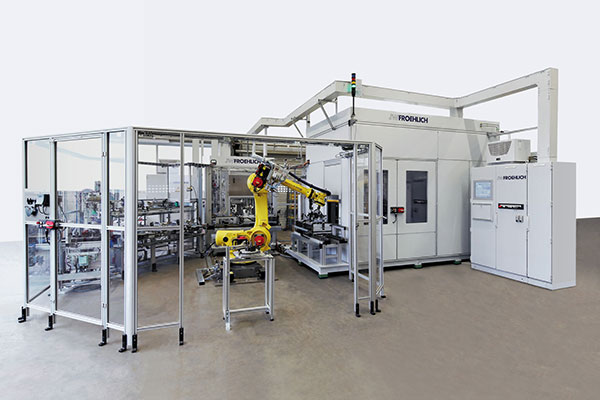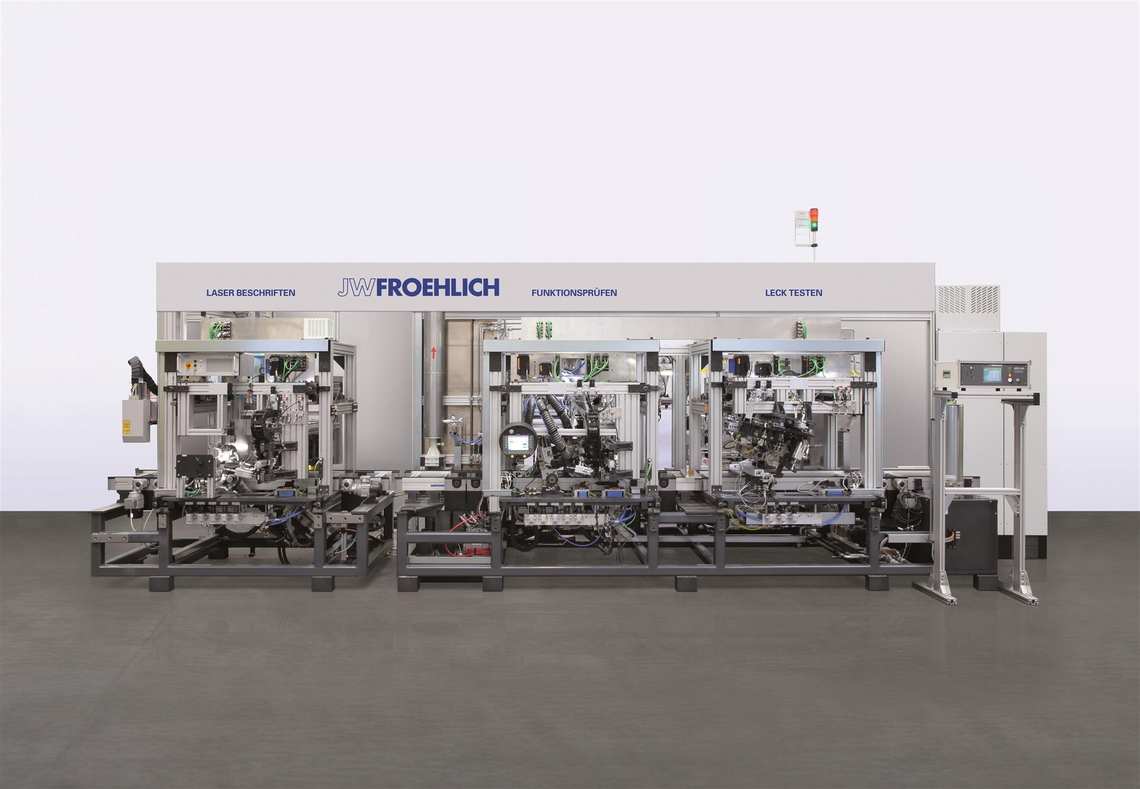Leak testing machines
Leak testing has been one of our core skills since the founding of the company: Starting in 1966 with the first leak test rig for water pumps, through the classical stroke-step transfer machines up to the current highly complex and highly flexible robotic systems. Automatic checking for leaks, primarily in the turbine chamber, compressor chamber, water chamber and oil chamber, is carried out in the turbocharger leak test rigs. In doing so, the technology developed by JW FROEHLICH enables the desired test data to be quickly and precisely collected and compared with specifications. In the event of the stipulated limit values being exceeded, the leaks are localised on a neighbouring work station and can thus be repaired. Only once the test has been successfully repeated in the production line will the test part be fed back into the assembly process. With simple turbochargers, up to three cavities can be leak-tested, whilst with turbochargers for engines with higher power ratings additional tests can be added.
Thanks to the high level of expertise, the tailor-made JW FROEHLICH leak testing systems for turbochargers can be seamlessly incorporated at the end of the assembly line, ahead of the functional check. Leak test panels developed by our company are installed in our leak test rigs and systems and optimally integrated into the test process.
Function test
The function check after the leak test serves as a quality check for the completely assembled turbocharger. Measurement ranges and tolerances for the comprehensive measurements are determined and parameterised together with the customer for this before the testing. After loading the test rig, the turbocharger is first automatically filled with temperature-controlled oil and then the test process is carried out in the stipulated steps. The JW FROEHLICH software assesses the measurements during the test procedure in order to guarantee the functional capability and quality of the turbocharger. Depending on the procedure on the customer's assembly line, the test rig can be expanded with an oil emptying station and/or a laser marking station.


